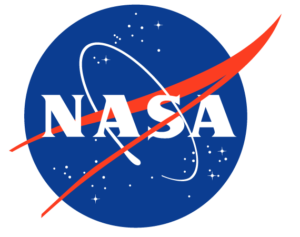July 20, 2019, will mark the 50th anniversary of man’s first landing on the moon. Those that witnessed the landing likely remember exactly where they were during this epic event. I recently had the honor of meeting Astronaut Buzz Aldrin, the pilot of the Eagle, whose fellow astronaut, Neil Armstrong, uttered the immortal words upon first stepping onto the moon: “ That’s one small step for man, one giant leap for mankind”.
Buzz attended “Earth X” at the invitation of Dallas resident and Founder, Trammell S. Crow. I sat down with him to ask some questions and hear his unique perspective on many topics ranging from preserving and protecting the environment, his trip to the moon, the exploration of space, and a mission to Mars.
You have a unique perspective having been in space, how important are events like Earth X towards educating people about our planet and resources?
Buzz: all 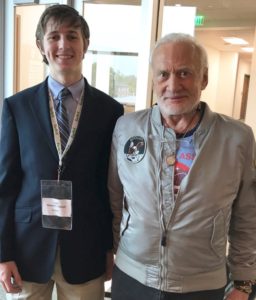 of our space activities have an important interest in the consumption of energy, especially more high power energy and our limits. In terms of space exploration, rockets consume lots of energy, and all of our energy conservation measures bring more attention to earth; and how we can more efficiently use energy and conserve our resources.
of our space activities have an important interest in the consumption of energy, especially more high power energy and our limits. In terms of space exploration, rockets consume lots of energy, and all of our energy conservation measures bring more attention to earth; and how we can more efficiently use energy and conserve our resources.
What was it like on the moon?
Buzz: It was a great privilege and an adventure! As a young man, I never expected it. My
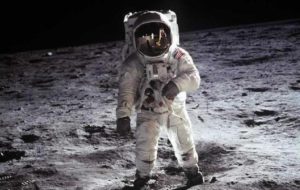
father was an early aviation pioneer, so I knew I’d follow in his footsteps. But I never imagined it would take me to the moon!
What was it like being viewed on television by 600 million people as you walked on the moon?
Buzz: It didn’t hurt a bit! I could hardly feel it! However, I was much more focused on the mission. We can’t be worried about failure being an option. But if you don’t prepare for it, then you’re in deep trouble. Training for emergency procedures is the most demanding of all an astronaut’s training, including for the mission control staff on the ground.
Who was your biggest influence while growing up?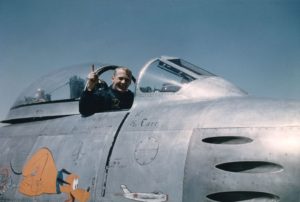
Buzz: My father’s interest in aviation brought me in touch with other historic people, like Eddie Rickenbacker and Jimmy Doolittle, who became my role models. So flying was always something I wanted to do! Then I began expanding into rockets and satellites. Reaching for higher creation and achievements.
What was your favorite part about being an astronaut?
Buzz: Being able to create something. First based on a military maneuver, then developing further advancements through my education at MIT, and later to combine that into a technique of joining spacecraft together. That’s one contribution that I can trace back that I find it very rewarding as an astronaut. I also enjoy scuba diving. I was one of the first to train underwater, providing important space training into neutral buoyancy, which was important for extravehicular activity and spacewalking.
Note: Buzz’s creative thinking at MIT lead to advancements in new orbital mechanics and docking procedures, solving problems of speed and centrifugal energy that caused an “orbital paradox”. After joining NASA he helped translate these techniques to his colleagues who nicknamed him (with sarcasm and respect) “Dr. Rendezvous”
If you didn’t become an astronaut, what would you be?
Buzz: I would have stayed in the service and continued flying.
With talk about the mission to Mars, establishing a moon base, and other activity, is a new age of space exploration is upon us?
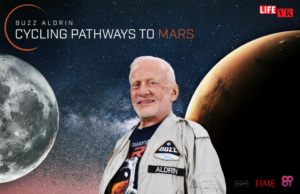 Buzz: I certainly think so. Next year is the 50th year anniversary of the first Eagle landing on the moon. In ten years from now, we expect to gather international support for the Eagle II, which should lead occupying the moon on a long-term basis. In 2040, we can begin with international crews occupying Mars. The biggest challenge is the operational efficiencies incurred with the expense of taking people there and back. So crews of 10-15 at a time will be trained to migrate to Mars. This makes for a more historic commitment.
Buzz: I certainly think so. Next year is the 50th year anniversary of the first Eagle landing on the moon. In ten years from now, we expect to gather international support for the Eagle II, which should lead occupying the moon on a long-term basis. In 2040, we can begin with international crews occupying Mars. The biggest challenge is the operational efficiencies incurred with the expense of taking people there and back. So crews of 10-15 at a time will be trained to migrate to Mars. This makes for a more historic commitment.
I understand you’re now 88 years old, what are you working on these days?
Buzz: I’m enjoying myself. I remain active and involved in helping establish greater efficiencies in space. Earth to orbit – orbit to orbit – then orbit to land. This is new thinking from prior techniques. Analyzing power supplies, efficiencies of cycling orbits between earth to Mars; and demonstrating more attractive tourism missions in earth-moon space.
Would you ever go back to space if you were given an opportunity?
Buzz: I don’t know who’s going to command me! I’m far more valuable down here helping to guide the space mission and consulting on various programs.
Space tourism is getting a lot of attention, what are your thoughts on this?
Buzz: Sub orbital flights is a focus for Jeff Bezos (Founder & CEO of Amazon) and it looks like he is going to be leading that program in West Texas with the Shepard rocket.
The new Glenn rocket will take people into orbit and stay at a human research laboratory, which will be the forerunner of something that goes from earth to around the moon and 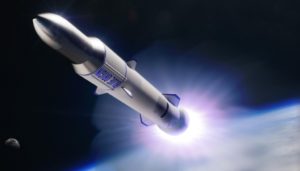 back and further. Eventually, you can purchase an 8-day trip to the moon or a 10-day trip behind the moon (offering a unique view of the earth and moon). There are several options that will be available. In addition, there will be industrial building activity on the moon. That is what Blue Moon and Blue Origin intend to do. That will be aligned with an international coalition of nations and will involve the combined investment and innovation of the private sector together with governments towards common goals.
back and further. Eventually, you can purchase an 8-day trip to the moon or a 10-day trip behind the moon (offering a unique view of the earth and moon). There are several options that will be available. In addition, there will be industrial building activity on the moon. That is what Blue Moon and Blue Origin intend to do. That will be aligned with an international coalition of nations and will involve the combined investment and innovation of the private sector together with governments towards common goals.
What advice would you give to someone interested in becoming an astronaut?
Buzz: The space program is undergoing progressive changes. Astronauts will become part of experiments in space stations. They will be involved in commercial transportation using slower transportation moving crew and cargo (like water) into earth orbit. Using slower, more fuel-efficient transportation (like partial solar energy). So a trip to the moon may take 3-4 weeks. Then there will be a need for astronauts that will take people to other places, once in orbit, using fast transportation.
What are your thoughts on the militarization of space?
Buzz: Weapons always seek their most destructive uses for people that have threatening or defensive purposes. Space won’t be immune to that. There are levels of cooperation and I hope for human space (from orbit outward), we can establish early cooperation as we’ve enjoyed with the Russians. We can do the same with the Chinese — but it will take very determined thinking to separate any conflicting ideas.
I heard that you took communion on the moon. Is this true? If so, can you tell us more about that?
Buzz: Yes that’s true. This was done with the approval of the Presbyterian Church. It was a gesture of thanks. It wasn’t appropriate to announce this at the time, other than for me to ask people around the world to give thanks in their own way.
Thank you for your time Buzz. It’s been an honor and a privilege.
